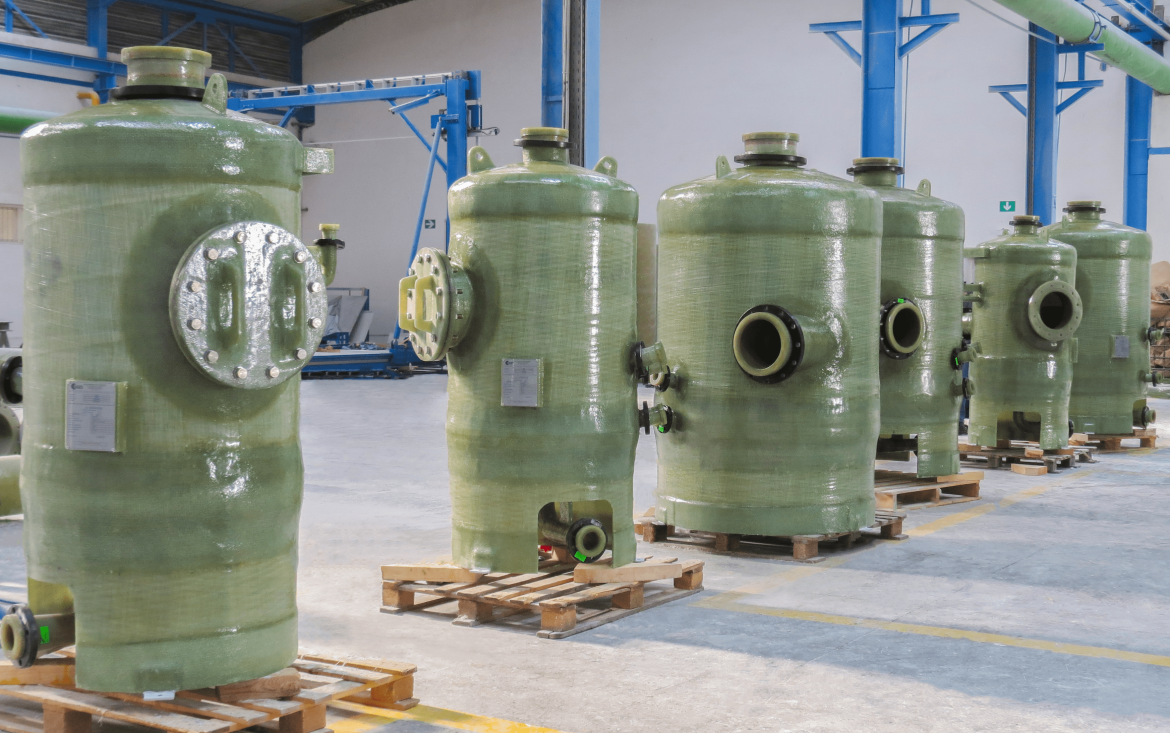

The mining industry, with its extreme working conditions and stringent operational requirements, calls for robust, durable solutions for mineral and waste transfer. Among the many materials available, GCER's GRP (Glass-Reinforced Plastic) pipes stand out for their exceptional properties.
Among the most widely used materials today, GRP pipes stand out for their many qualities. Below, we explore in detail the many advantages that these pipes bring to the mining industry :
With its resin-impregnated glass fiber structure, GRP composite offers exceptional mechanical properties, making it an ideal solution for demanding mining environments. Here are some of these features :
GRP pipes have excellent abrasion resistance, which is crucial in mines where abrasive materials are commonly transported. This feature extends the service life of the pipes and reduces maintenance costs.
The inner surface of GRP pipes is extremely smooth, reducing pressure losses and improving flow efficiency. This is particularly advantageous for conveying liquids and slurries, where laminar flow is essential to avoid blockages and inefficiencies.
GRP is highly resistant to chemicals, making it ideal for conveying corrosive substances often encountered in the mining industry. This chemical resistance ensures longer pipe life and protection against dangerous leaks.
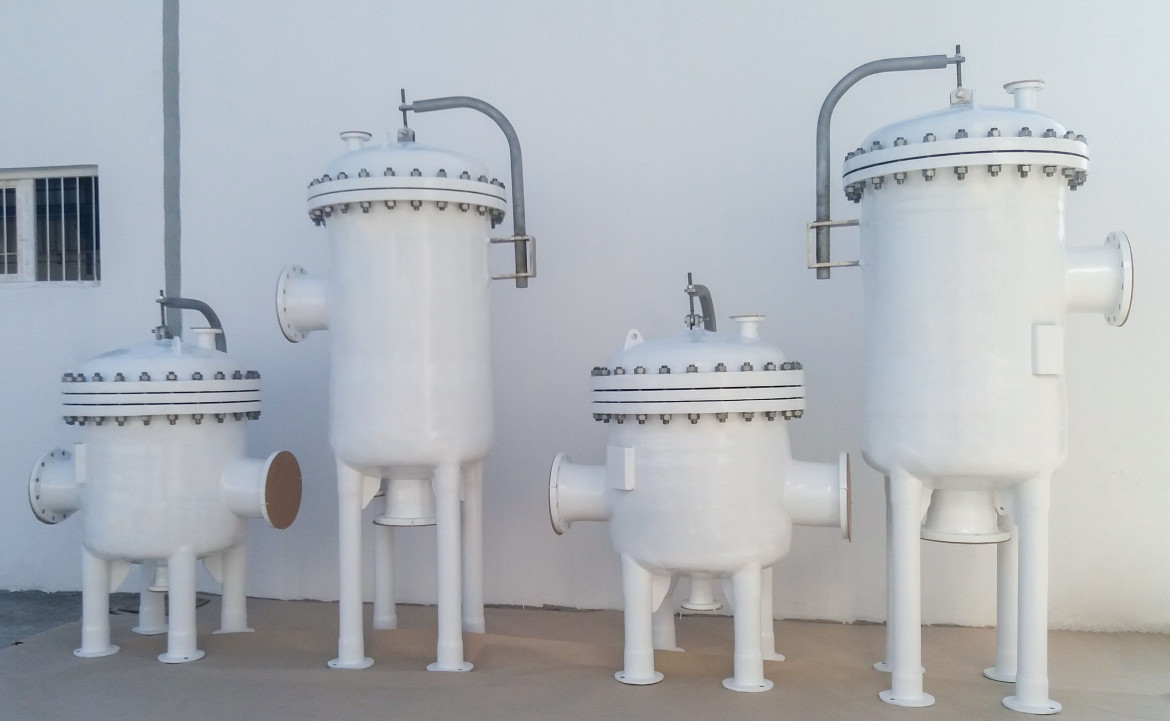
In the mining context, safety and reliability are paramount. GRP pipes offer significant advantages in these areas :
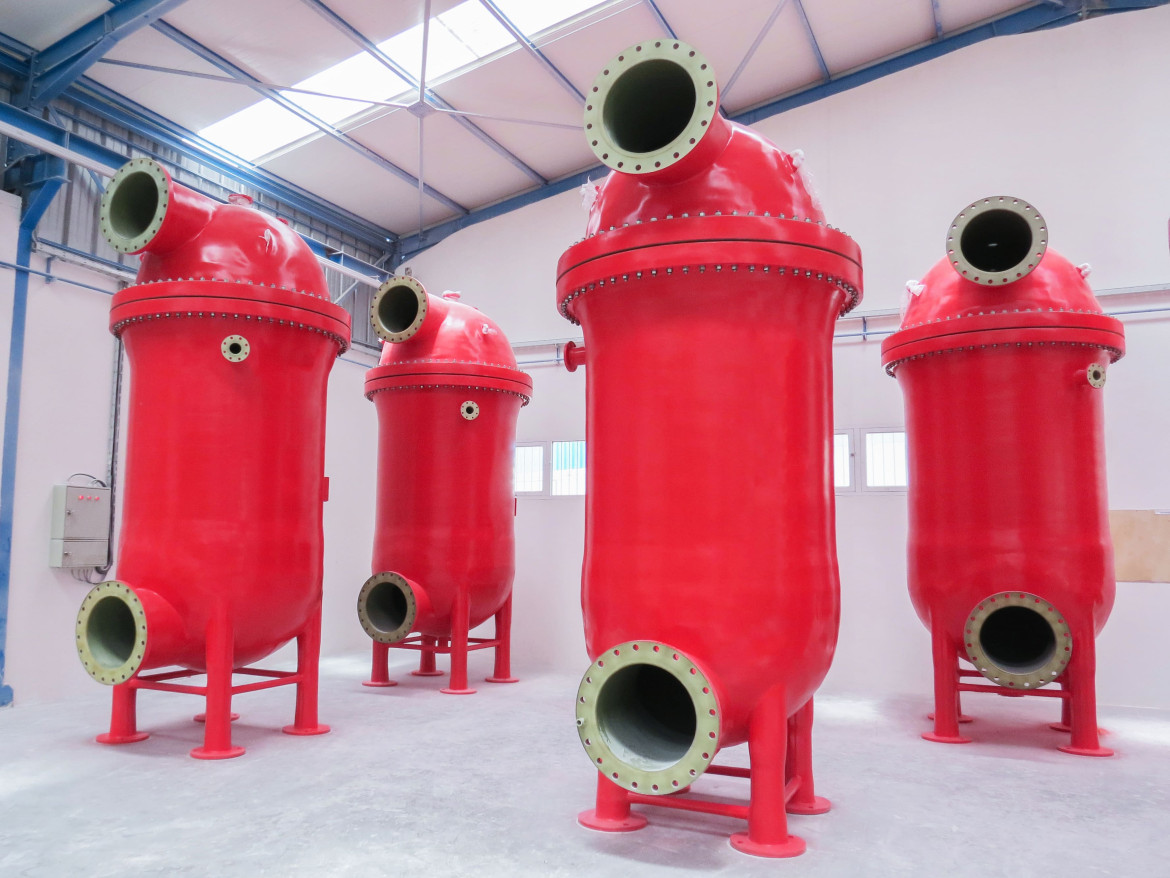
GRP pipes are designed to resist impact, making them particularly robust in mining work environments where shocks and vibrations are frequent. This resistance reduces the risk of cracks and breaks, ensuring continuous operation without unplanned interruptions.
The reliability of GRP pipes is well documented in many industrial applications. Their ability to perform flawlessly under extreme conditions helps minimize operational risks, ensuring the continuity of mining processes and reducing the costs associated with production stoppages.
GRP pipes offer several comparative advantages over traditional metal pipes, including :
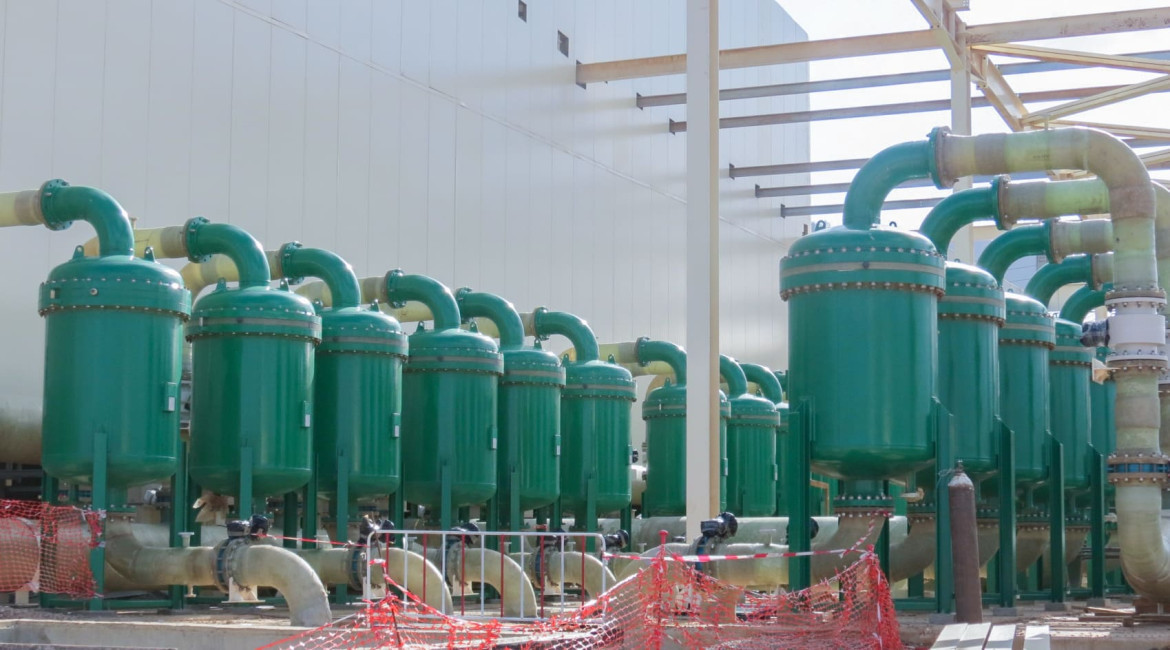
Unlike metal pipes, which can corrode and wear out quickly in the presence of abrasive and corrosive substances, GRP pipes maintain their structural integrity and performance, reducing replacement and maintenance requirements.
GRP pipes are often more economical in the long term, due to their durability and lower maintenance costs. In addition, their installation is generally less costly and less complex than that of metal pipes, resulting in substantial savings in terms of labor and time.
GRP pipes are lightweight and easy to handle, simplifying installation and reducing the need for heavy lifting equipment. In addition, their flexibility means they can be easily adapted to complex mine configurations, improving operational efficiency.
GRP pipes and accessories are used in a wide range of mining applications, demonstrating their versatility and adaptability :
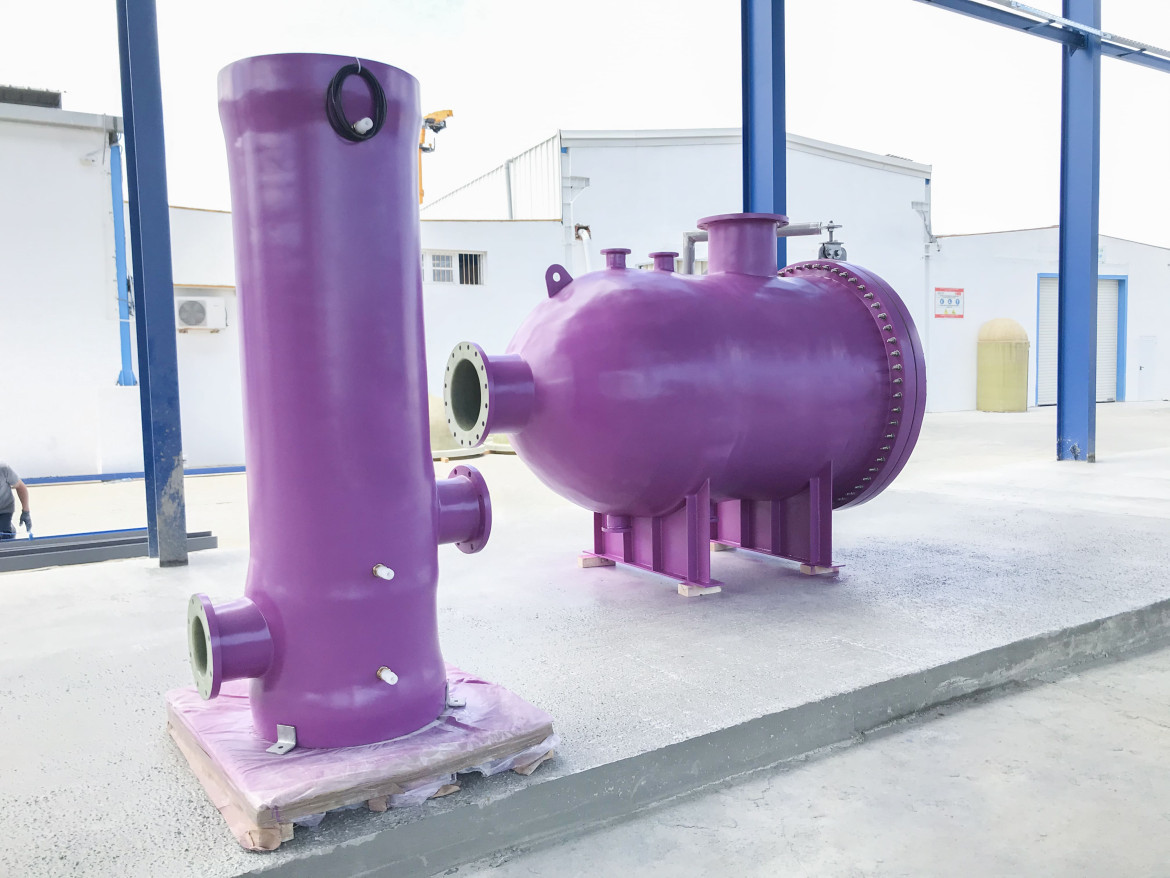
GRP pipes are used to transport grout, a suspension of particles in a liquid, commonly used for filling and reinforcing mining cavities. Their resistance to abrasion and chemicals makes them ideal for this application.
GRP pipes are also used for loading blast holes with explosives or other materials required for mining operations. Their robustness and reliability ensure safe and efficient loading.
Water transport is a critical application in mining, whether for equipment cooling, dust control or mineral processing. GRP pipes, with their corrosion resistance and smooth surface, are ideally suited to this task.
In coal washing operations, GRP pipes are used to convey sludge and wastewater. Their abrasion resistance and durability guarantee reliable performance under severe operating conditions.
Mines use a variety of chemicals for various operations, such as ore processing. GRP pipes, with their exceptional chemical resistance, ensure safe, leak-free transport of these substances.